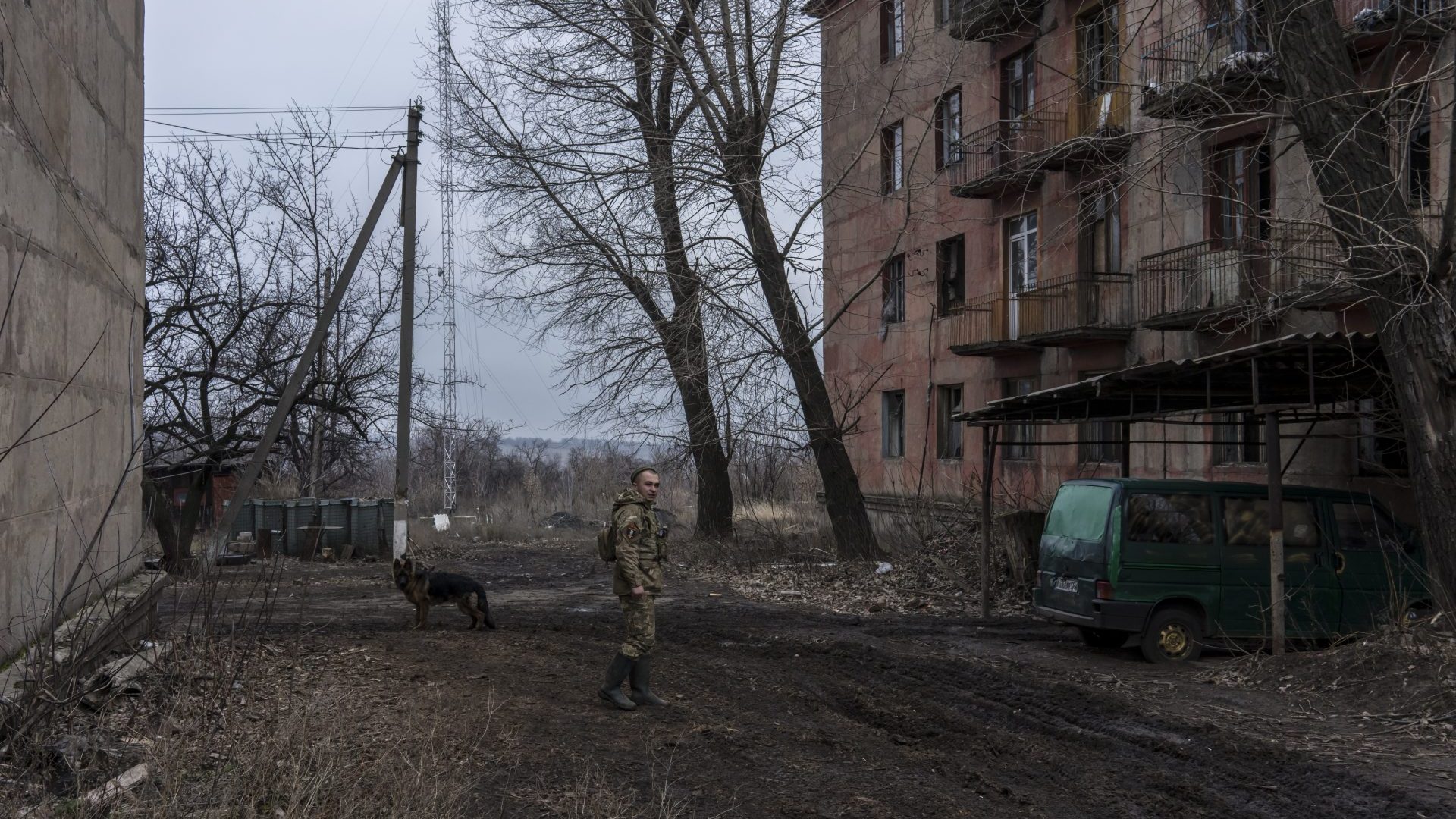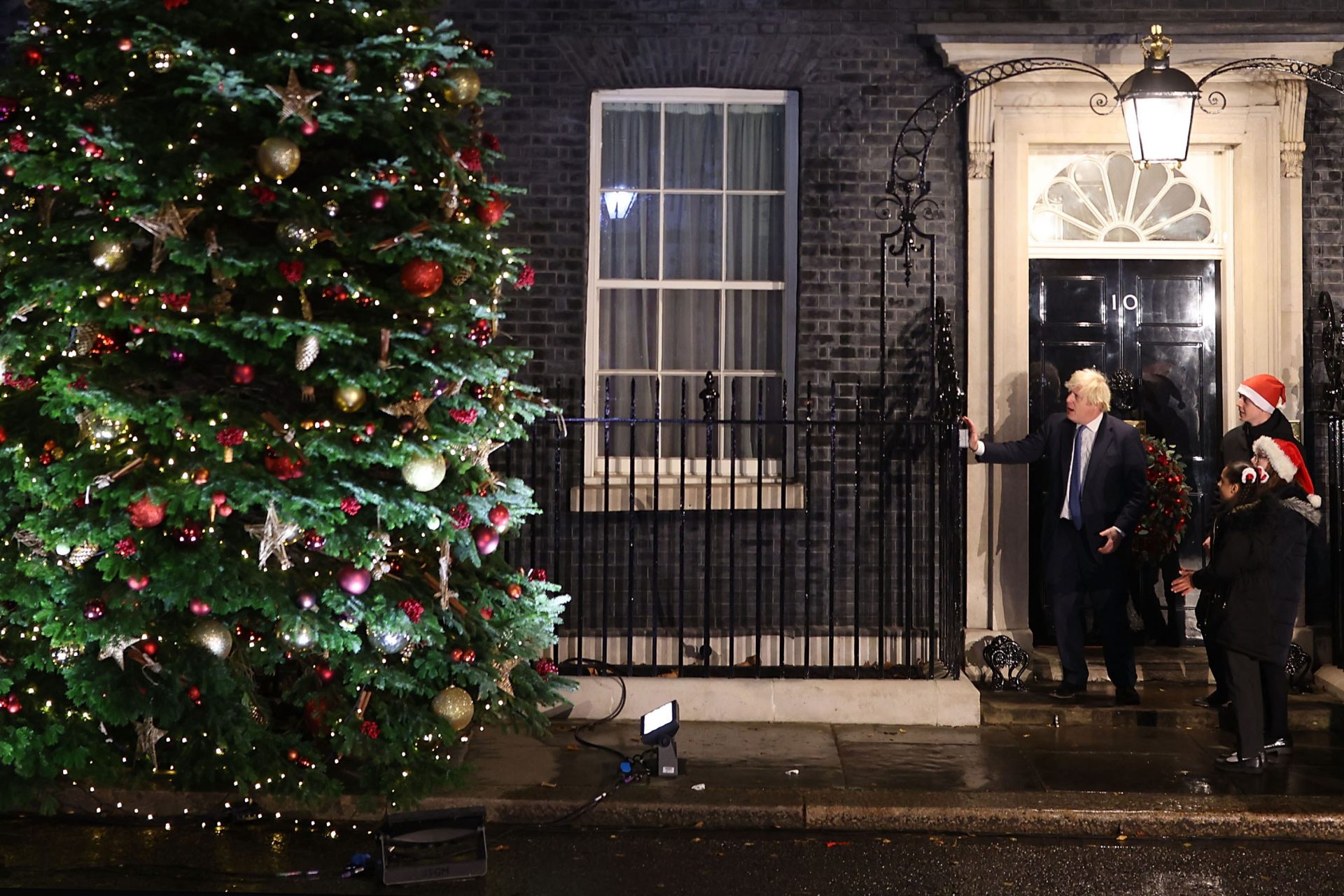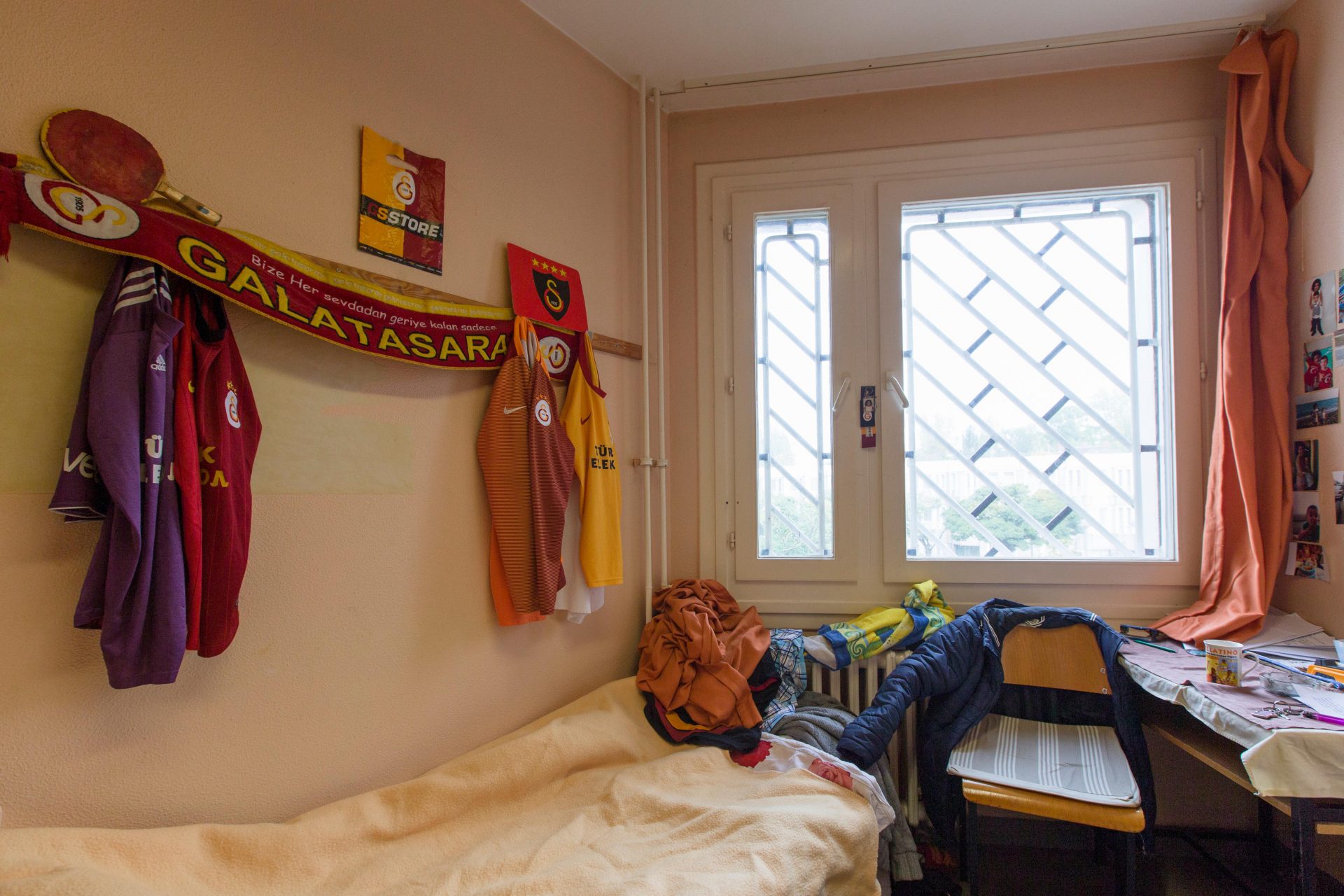“It is not wise to fall asleep next to a big bear.” So said Viktor Yanukovych, Ukraine’s president in February 2012. Exactly two years later he fled the country by helicopter after a popular uprising, scarpering into the bosom of his Russian overseer, Vladimir Putin.
Exactly 10 years later the two countries are close to all-out war.
Yanukovych left behind a gaudy palace, which became a popular tourist destination. Tens of thousands of people flocked to gawp at the pet ostriches, gold-plated golf clubs, and the odd model horse standing in the manicured garden. The 340-acre Mezhyhirya estate outside Kiev also boasted a replica of a Spanish galleon, bobbing on a man-made pond. The Soviet-era thug was never to be seen again in his own country. In 2019 he was convicted in absentia of treason and sentenced to 13 years in jail. Sanctions were imposed on him and a dozen of his confidants, with more than £75m frozen in Swiss bank accounts.
Ever since securing its independence when the USSR collapsed in 1991, Ukraine has been mired in corruption and instability. Politics and public life are essentially divided between those who feel spiritual allegiance to Russia and those who see their future with the West. A similar societal split is taking place in most of the 15 former Soviet republics.
In Belarus, Alexander Lukashenko has rigged elections and either jailed, or forced into exile, key opposition leaders. As he clings to power, he hugs Putin close. The two recently manufactured a crisis on Belarus’s border with Poland by bringing in thousands of refugees from the Middle East – just to antagonise the EU.
Tensions are simmering elsewhere, while not capturing the headlines. One example is tiny Moldova, Europe’s poorest country, which borders Romania on one side and Ukraine on the other. Its president, Maia Sandu, is just the kind of politician Moscow fears: an English-speaking, Harvard-educated economist. Since winning a general election a year ago, she has been consistently undermined by pro-Kremlin forces within politics, business and criminality – usually one and the same thing.
Georgia, birthplace of Joseph Stalin, has never stopped being turbulent. Its Rose Revolution of 2003 presaged a brighter future, but since then rival factions have severely damaged its credibility.
What unites many of these countries is a desire to be embraced by the West. They cling to the hope of joining the EU. But that is a long way off; neither Ukraine, Georgia nor Moldova has been declared a candidate country, and even that status is no guarantee of membership, as states such as Serbia and Albania are being kept in a holding pattern.
NATO membership is even more contentious, and as a result more unlikely. In 2008, the promise was made to Ukraine and Georgia, without specifying when or how. Since the collapse of communism, a number of countries that were once part of either the Warsaw Pact or the USSR have joined the Western military alliance, moving its boundaries hundreds of miles eastwards.
The Kremlin has never come to terms with the loss of empire and has spent the past 30 years fighting to reverse the verdict of history. This struggle between Russian revanchism and the nation-building efforts of the former Soviet republics has shaped the political landscape for a generation.
Putin has described the demise of the Soviet Union as “the greatest geopolitical catastrophe of the century”. Initially, he gave the impression, perhaps sincerely, of wanting to move closer to the West. The G7 became the G8.
Tentative partnership arrangements were discussed with other institutions. But then in the middle of the 2000s, he turned.
After offering support, or at least acquiescence, for the invasions of Afghanistan and Iraq, Putin felt he had been double-crossed. I saw this for myself when, in September 2004, I was part of a small group of international experts invited one evening to his residence at NovoOgarevo, on the outskirts of Moscow.
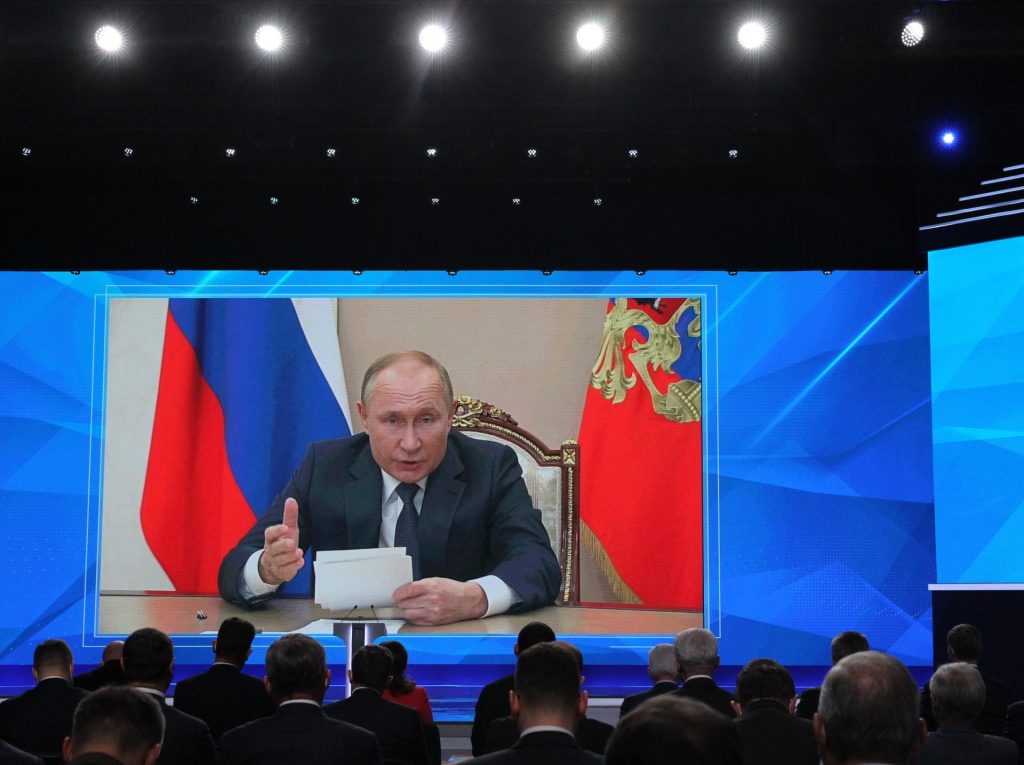
For four hours, late into the night, Putin his let his anger rip. He complained to us about being taken for granted. He reverted to a classic Russian historical default of grievance. Where were the thanks for the support he had given? He had turned a blind eye to NATO encroachment and what had he got in return? Just more humiliation.
In Putin’s view, Russia is encircled. Its security can be ensured only if it maintains a sphere of influence over bordering countries, threatening them from without and undermining them from within. Russian minorities, from Latvia to Estonia, from Moldova to Armenia, provide a foothold. Ukraine is a special case; by far the most important conflict zone. It is more than a backyard; it is, to millions of Russians, part of their soul. That is why Putin’s show of strength now is so dangerous.
He has already shown what he is capable of when, after Ukraine’s pro-democracy revolution in 2014 (the one that ousted Yanukovych), Putin responded with force. First, he annexed the peninsula of Crimea. Then he fomented a war in the two most easterly, and most Russianinhabited, region of Ukraine, Donbas. Some 14,000 people have already died in urban street-fighting and trench warfare between the Ukrainian army and Russian-backed separatist forces, who now control the area.
There might be worse to come. According to US intelligence assessments, shared widely with allies, Putin may be amassing 175,000 Russian troops and heavy weaponry around Ukraine’s borders. More than half are already in place.
The West has said it will not intervene militarily, but even so, any incursion would be likely to lead to a major conflagration. Ukraine’s army is better trained and equipped than it used to be. While it would almost certainly be unable to withstand a full-scale invasion, it would mount serious resistance. On the 30th anniversary of the founding of Ukraine’s armed forces last week, the country’s president, Volodymyr Zelensky, donned a helmet and flak jacket to tour the trenches and announced with fanfare the delivery of new tanks, armoured vehicles and ships to frontline units.
Part of Putin’s strategy is classic sabre-rattling, intended to divert attention from his country’s woes. His government’s Covid response has been inept, with large numbers of citizens refusing to take Russia’s own vaccines (some have shown themselves more prepared to use Western ones). The economy continues to flounder. The president’s poll ratings – even in a country where many are scared to criticise – are at a low ebb. Not that it matters too much; after all, he has imprisoned or poisoned, any opposition figure deemed a threat. He is hoping that a war might rally the country, for a while at least. The taking back of Crimea, which was given to Ukraine as a gift in 1954 by Nikita Khrushchev, has proved hugely popular.
The other reason for Putin’s present-day military manoeuvres is that he regards Ukraine, where the medieval Russian state was born, as a fake country and an inalienable part of Russia. This is by no means a fringe view. Millions of Russians believe the same.
Not a man normally taken to writing treatises, Putin laid out his views in July in a long essay entitled: “On the Historical Unity of Russians and Ukrainians”. Much of it is a history lesson. The crucial sections refer to the period immediately after 1991: “When the USSR collapsed, many people in Russia and Ukraine sincerely believed and assumed that our close cultural, spiritual and economic ties would certainly last, as would the commonality of our people, who had always had a sense of unity at their core. However, events – at first gradually, then more rapidly – started to move in a different direction,” he wrote.
“In essence, Ukraine’s ruling circles decided to justify their country’s independence through the denial of its past… they began to mythologise and rewrite history, edit out everything that united us, and refer to the period when Ukraine was part of the Russian Empire and the Soviet Union as an occupation.”
He then resorts to the classic Soviet-era propaganda technique of rallying the supposed oppressed.
“For many people in Ukraine, the anti-Russia project is simply unacceptable. And there are millions of such people. But they are not allowed to raise their heads. They have had their legal opportunity to defend their point of view, in fact, taken away from them. They are intimidated, driven underground. Not only are they persecuted for their convictions, for the spoken word, for the open expression of their position, but they are also killed.”
He, in other words, has a solemn duty to come to the aid of the defenceless. This is a casus belli that he can invoke anytime, anywhere there is a Russian minority.
Some in Western Europe buy into this Russia-victim narrative, particularly the Germans whose crimes on the Eastern Front in World War Two continue to influence policy. The new government of Olaf Scholz will, in coming weeks, have to decide the fate of the Nord Stream 2 gas pipeline that has so enraged Ukraine, Poland, the Baltic states – and the US.
While the Biden administration sees China as its top priority, it knows that any sign of weakness towards the Kremlin will be seen by both Putin and by president Xi Jinping as further evidence of a weakened and more isolationist America. Hence the dark warnings have increased. After a meeting of foreign ministers, the G7 warned Putin of ‘massive consequences’ if Russia invades Ukraine.
With direct military intervention essentially off the table, officials in Washington have listed a series of economic options. One is to pressure Scholz to abandon Nord Stream, something he will be extremely reluctant to do, even if his Green coalition partners would be delighted by the idea.
Tightening sanctions on Putin’s entourage would almost certainly follow any action in Ukraine, although their effectiveness continues to be limited. One of the most radical measures would be to cut off Russia from the system of international payments known as SWIFT that moves money around the world, as was done to Iran.
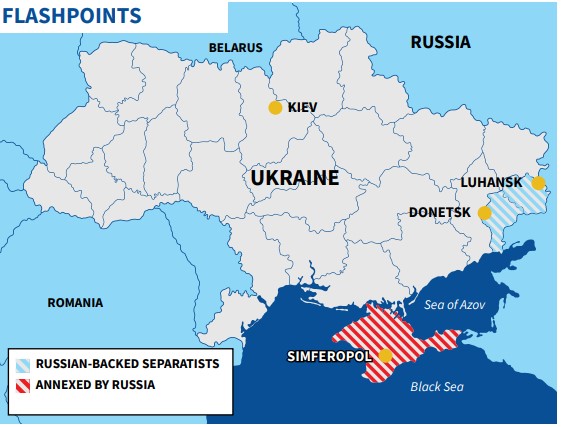
After his recent video conference with Putin, Biden appeared to be looking both ways, telling Eastern European allies that he stood behind them just after he had alarmed them by talking of the need to find an “accommodation” with Moscow. Might he agree that NATO will quietly drop its membership invitation to former Soviet states?
Putin’s politics of grievance has much life in it yet. He will have enjoyed lecturing the US president about how Russia remains a great power and must be treated as such. After changing the constitution last year, he plans to bestride the stage for another 15 years at least, long after Biden will be forgotten.
Putin knows that if the people did overthrow him, they would find far more lavish palaces than Yanukovych could have dreamt of. The man said to be worth upwards of £38bn is going nowhere and if it takes military action to buy him time, then so be it.


